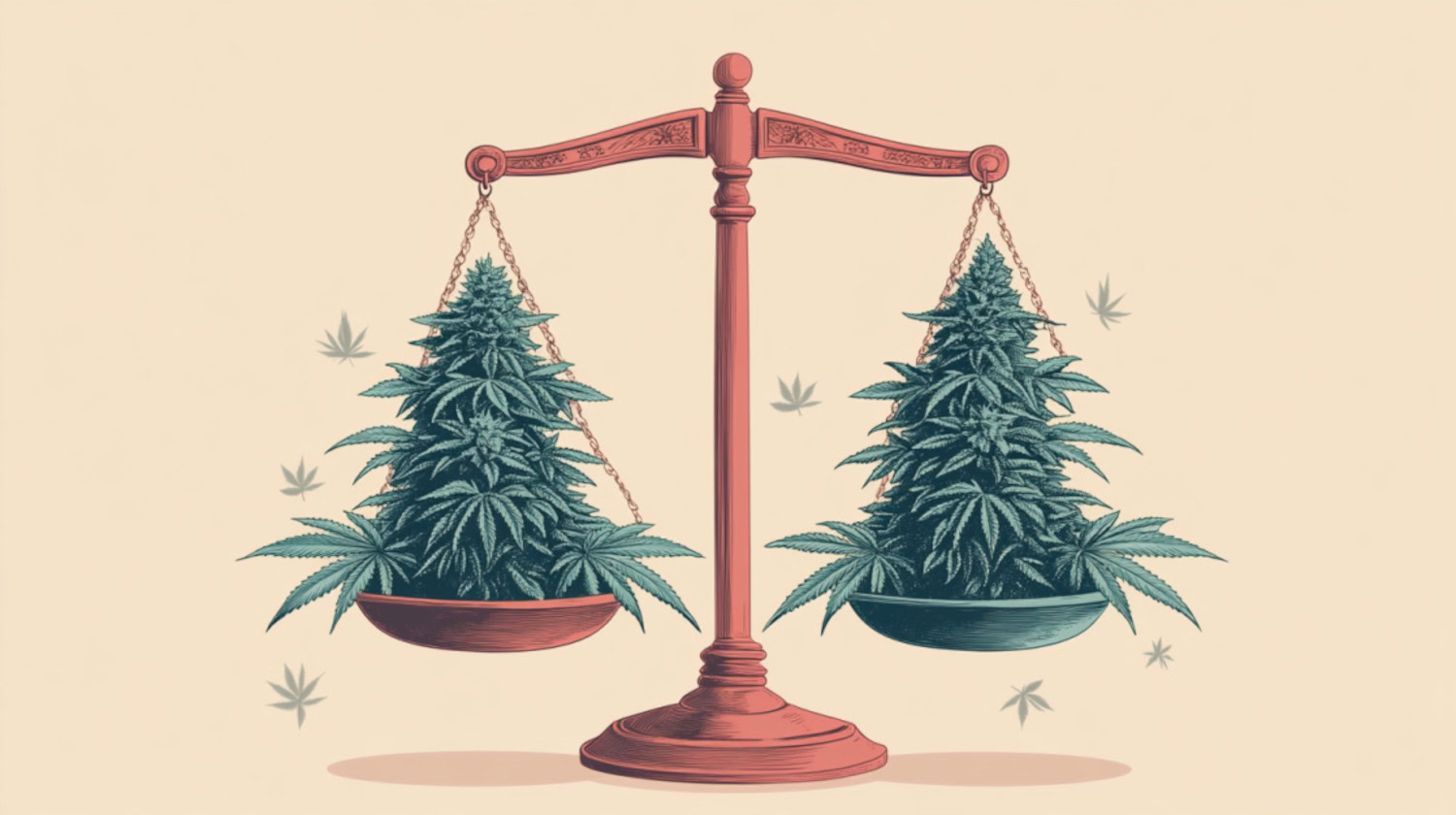A key House of Representatives legislative committee has approved an appropriations bill that includes language to block the Department of Justice from reclassifying cannabis under federal drug laws. The legislation also maintains protections for state medical cannabis programs, but adds new language that authorizes increased penalties for cannabis sales near schools and parks, according to a report from Marijuana Moment.
The medical cannabis provisions are included in an appropriations bill funding Commerce, Justice, Science, and Related Agencies (CJS) that the House Appropriations Committee released on July 14. Only a day later, the bill was approved by a key subcommittee by a vote of 9-6, advancing the legislation to the full committee for consideration.
The bill jeopardizes a pending proposal to reclassify cannabis under federal drug laws initiated by the Biden administration. In January 2024, the Department of Health and Human Services (HHS) determined that cannabis was eligible for a less strict classification under federal drug laws after a review of available evidence. In the review, researchers with the U.S. Food and Drug Administration (FDA) determined that credible evidence shows that cannabis has legitimate medical uses and fits the criteria for rescheduling under the federal Controlled Substances Act (CSA).
In April 2024, the Drug Enforcement Administration (DEA) indicated it would approve the effort to reschedule cannabis, later issuing a proposed rule to facilitate the change under federal law. Under the proposal, cannabis would be removed from Schedule I of the CSA and placed in the less restrictive Schedule III.
Cannabis Rescheduling Process On Hold
Hearings to consider the proposed rule change were put on hold pending an appeal challenging the process filed by cannabis policy reform advocates. In April 2025, the DEA informed an administrative law judge that the rescheduling proposal is awaiting consideration from DEA Acting Administrator Derek Maltz.
The Department of Justice’s rescheduling process could be ended altogether under the CJS appropriations bill. If passed in the form approved by the subcommittee, the department and its agencies would be prohibited from using federal funds to approve the proposed rule change.
“SEC. 607. None of the funds appropriated or otherwise made available by this Act may be used to reschedule marijuana (as such term is defined in section 102 of the Controlled Substances Act (21 U.S.C. 802)) or to remove marijuana from the schedules established under section 202 of the Controlled Substances Act (21 U.S.C. 812),” the provision of the appropriations bill reads.
State Medical Cannabis Programs Could Be In Jeopardy
The CJS funding bill also includes a longstanding provision that protects state medical cannabis programs known as the Rohrbacher-Farr Amendment. Under the amendment, which has been included in appropriations legislation for more than a decade, the DOJ and its agencies are prohibited from spending federal funds to interfere with state-legal medical cannabis programs.
The legislation, however, includes new language that authorizes the DOJ to enforce a section of federal law that increases penalties for distributing cannabis within 1,000 feet of an elementary school, vocational school, college, playground, or public housing unit. Medical cannabis advocates say the provision could be used to restrict access to patients.
Steph Sherer, founder of Americans for Safe Access, applauded the approval of language that continues the Rohrbacher-Farr protections for state medical cannabis programs. She added, however, that the new provisions threaten patient access while the rescheduling restrictions impede progress on federal cannabis policy reform.
“The inclusion of the Medical Cannabis Amendment language is a partial victory for patients,” Sherer said in a statement from the patient advocacy group. “However, the changes to the amendment would put patients in harm’s way, and stopping the rescheduling process at this time would not only be a waste of taxpayers’ dollars, but also an unnecessary roadblock in getting to the truth about the medical uses of cannabis.”
Catch up on the latest cannabis news, and sign up for NuggMD's Weekly Sesh newsletter for the latest cannabis news, consumer tips, and recommendations.
The information in this article and any included images or charts are for educational purposes only. This information is neither a substitute for, nor does it replace, professional legal advice or medical advice, diagnosis, or treatment. If you have any concerns or questions about laws, regulations, or your health, you should always consult with an attorney, physician or other licensed professional.




